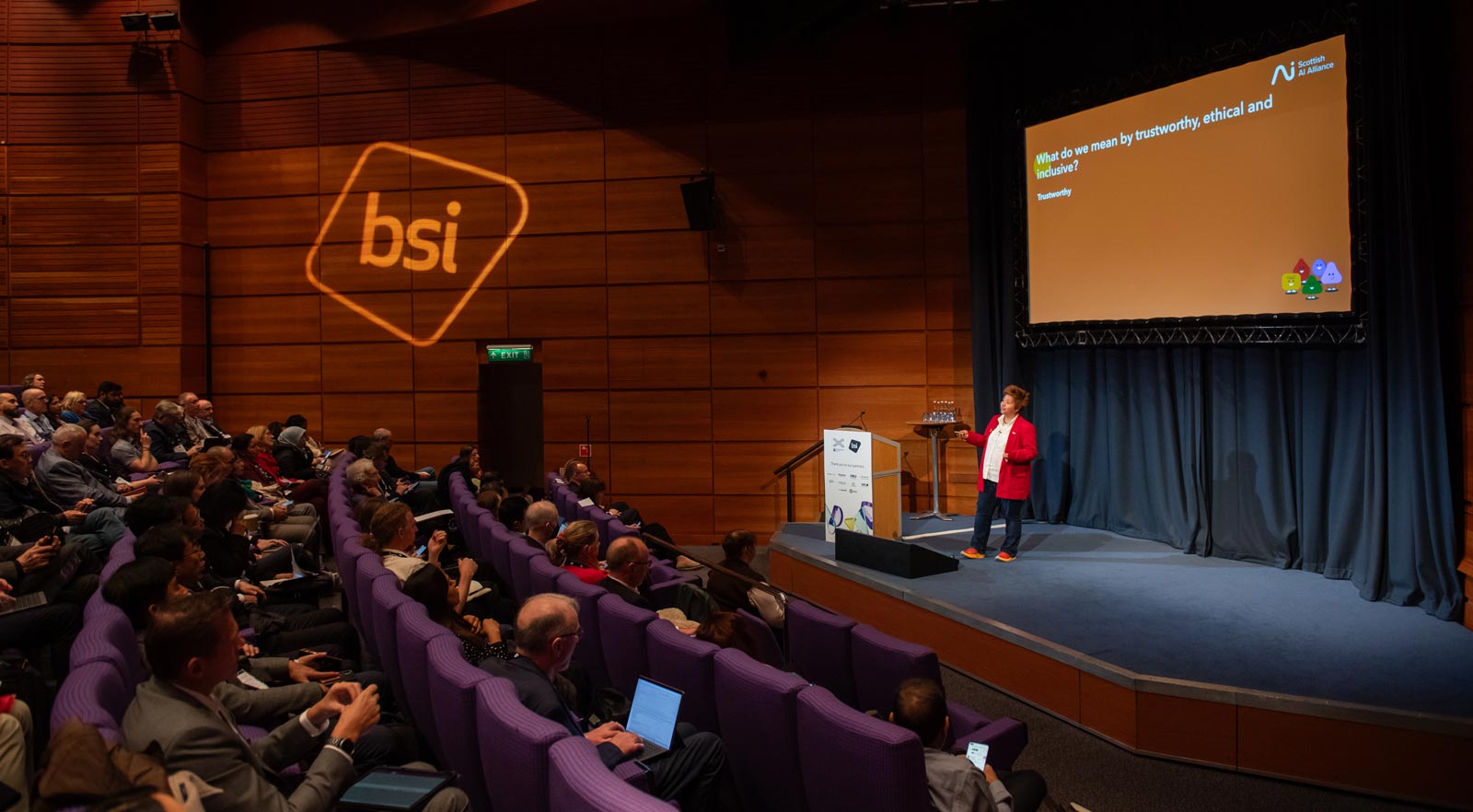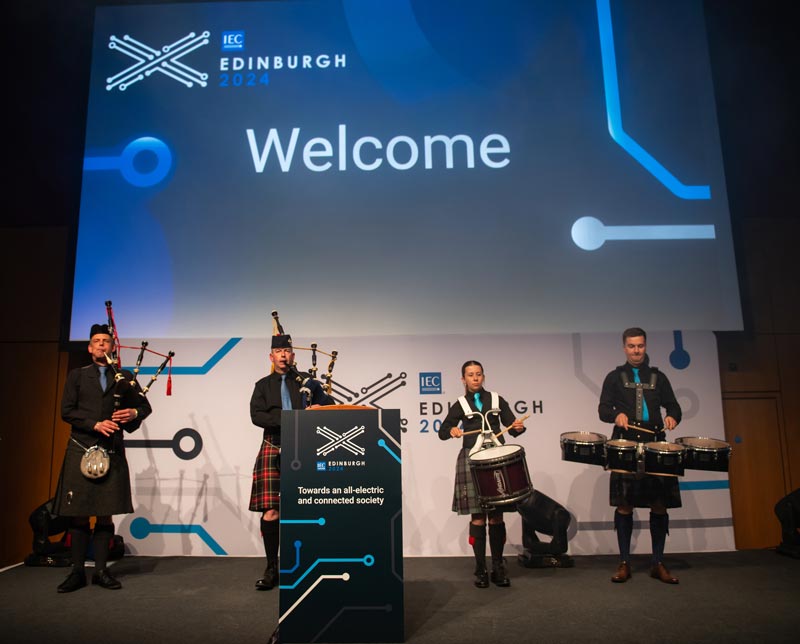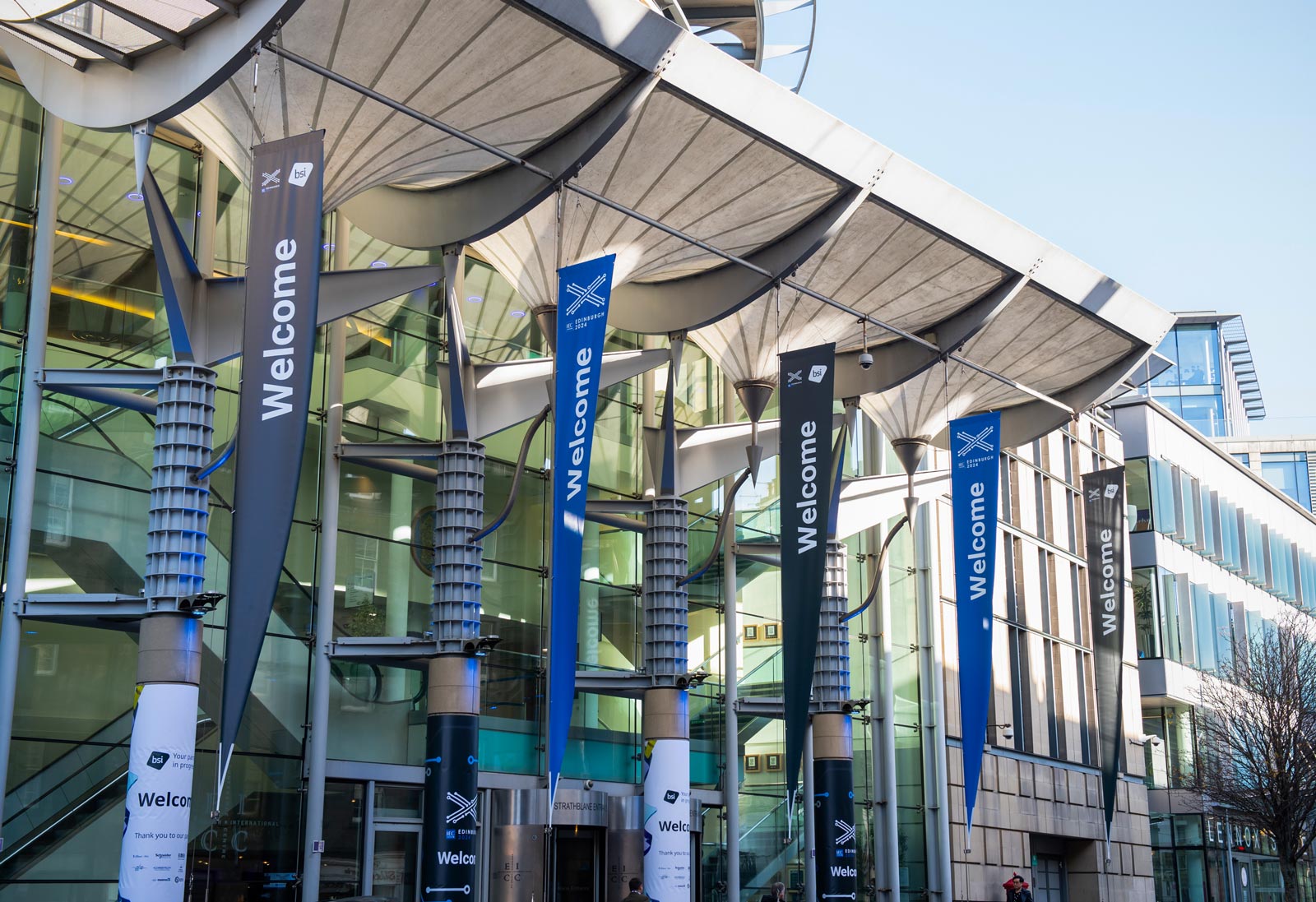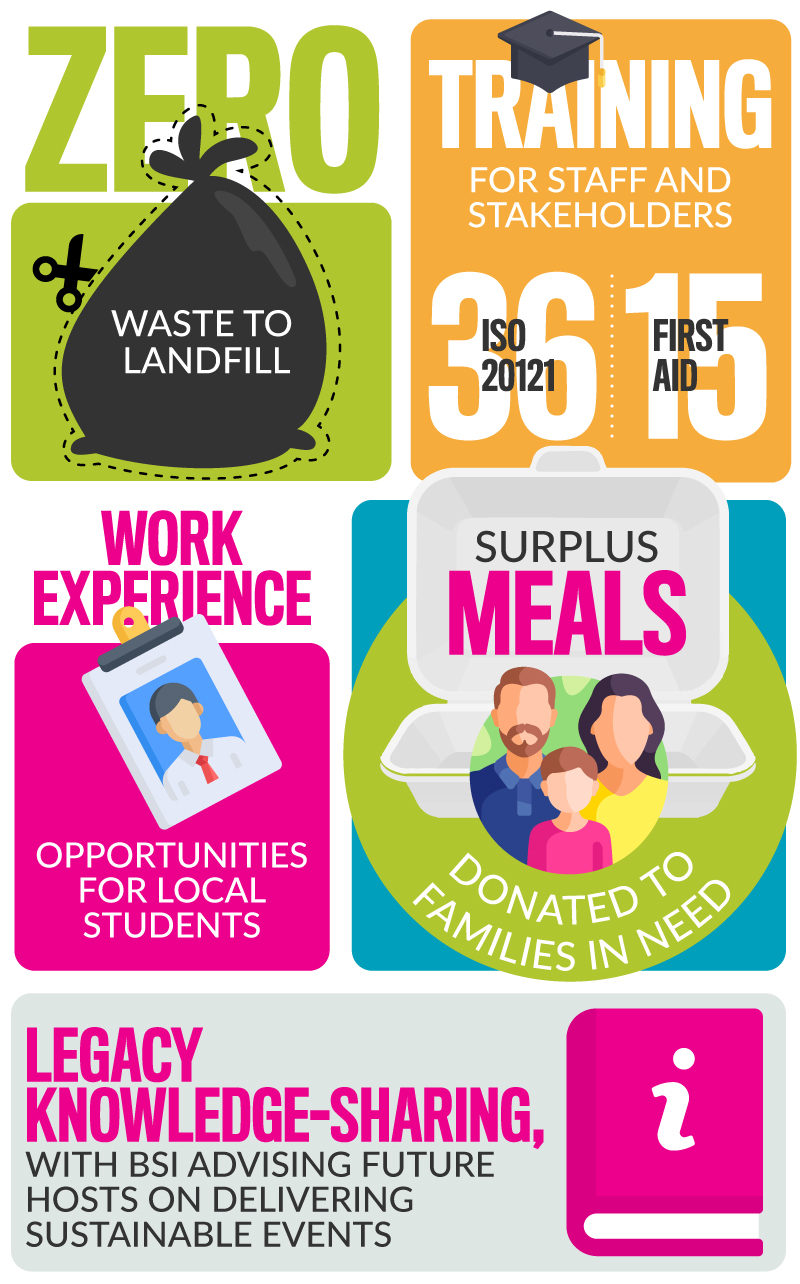
From zero waste to landmark public workshops, the International Electrotechnical Commission (IEC) General Meeting in Edinburgh, hosted by the British Standards Institution (BSI), showed how a venue, a client and a city can work together to deliver sustainability with impact
LAST OCTOBER, Edinburgh welcomed over 1,300 delegates from 122 countries for the International Electrotechnical Commission’s (IEC) General Meeting. It was the first time the UK had hosted the event in more than 35 years – and for the Edinburgh International Conference Centre (EICC), it marked one of the most significant conferences of 2024.
Twelve months on, the impact of the meeting is still being felt – not only in the city but across the global events industry. For Jessica Penney, Events Portfolio Team Manager at BSI, it stands out as a significant project in her career.
“For me as an event planner, it was probably a career highlight – what we achieved, how we made it work, and the fact the impact is still ongoing,” she says.
A city and a venue aligned
From the outset, sustainability was at the heart of the project. BSI committed early to running the event to ISO 20121, the international standard for sustainable event management. That decision shaped everything from the choice of city to the choice of venue.
“We didn’t feel like a client with a supplier; it felt like a genuine partnership”
Edinburgh ticked the boxes: a compact, walkable city with an electrified train line from London, a tram network, and a reputation for innovation and academic excellence. The EICC became the natural hub – not just for its facilities, but for its people.
“Our strategic aspiration was for a host city and venue that really aligned with our objectives,” Jessica says. “The EICC was just a really good venue for us – the location, what it could offer, and especially the staff. The EICC team was superb, proactive, and collaborative. We didn’t feel like a client with a supplier; it felt like a genuine partnership.”

What is ISO 20121, and why does it matter?
ISO 20121 is the global standard for developing and delivering sustainable events. It asks organisers to consider required sustainability standards – not just around the environment, but also inclusion, accessibility, supply chains, and the legacy an event leaves behind.
For the IEC General Meeting, BSI set out two years in advance to achieve certification. As part of the process, an internal audit and management review was carried out.
As a result, BSI’s hosting of the 2024 General Meeting proudly met the ISO 20121 standard, with zero waste to landfill, surplus meals donated to families in need, and a detailed sustainability impact report to show the impact it made.
Delivering to the highest standard
Certification to ISO 20121 required meticulous planning. BSI, its event partner Fresh Group, and the EICC worked hand in hand for more than two years to make it happen. Jessica says the EICC’s sustainability manager, Rob Turnbull – also a BSI standards committee member – was instrumental.

“When we spoke to the EICC and said, ‘This is what we want to do, can you support it?’ they were completely on board”
From eliminating single-use plastics and providing water stations, to ensuring zero waste to landfill and producing detailed post-event sustainability reports, the venue’s long-established practices supported the event’s objectives. The EICC has been zero waste to landfill since 2019, introduced impact reporting in 2021, and has operated on a renewable energy tariff since 2022 – making sustainability part of business as usual.
“When we spoke to the EICC and said, ‘This is what we want to do, can you support it?’ they were completely on board,” Jessica says. “They already had a sustainability manager in place and strong practices, from eliminating single-use plastics to zero waste to landfill. They even provide an impact report after every event, which is brilliant.”
That collaborative spirit extended beyond the venue. A month before the General Meeting, the EICC hosted a test event for BSI, which brought together technical teams, caterers, managers, and planners to rehearse every detail. “We decided very early on that we wanted to deliver this in partnership as one team,” Jessica says. “For the certification event, EICC were really accommodating to our needs, and we benefitted from excellent catering from EICC Nourish too.”

A wider impact on the city
While the EICC was the hub, the event spilled across Edinburgh. The city became an ‘event campus’, with three satellite hubs hosting technical committee meetings and social events spread across the city’s landmark venues.
That distributed model was about capacity, but was also a deliberate choice to extend accessibility, inclusion, and legacy across the city. The EICC worked with partner venues that shared its values and facilities, ensuring the event was easy to navigate for delegates of all needs. As Jessica explains: “With ISO 20121 there’s a lot about inclusion and accessibility. For us, it wasn’t just a tick box exercise – we really took it to a whole other level.”
This commitment extended to the event website, which featured a detailed accessibility page, spelling out everything from airport transfers to pavement conditions around Haymarket Station. The meeting itself was shortened from two weeks to one, reducing costs for delegates and broadening participation.

Opening the doors: public workshops
One of the defining features of the week in Edinburgh was the decision to use unused EICC space to host several public-facing workshops alongside the main programme. For this, the EICC’s flexibility was crucial, its adaptable lecture theatres allowing BSI to run parallel streams without compromising the main programme.
“Why not use the space to extend the topics and subject matter, and wider debate into the local community?”
“We had a bit of a lightbulb moment – ‘We have a lecture theatre space we aren’t using, why not use the space for other engagement, to enable us to extend the topics and subject matter, and wider debate into the local community?’,” says Jessica. “In the end, those sessions turned out so well.”
The workshops focused on pressing global themes – Smart Cities, Artificial Intelligence, Net Zero, and Quantum Technology – and brought together delegates with local academics, policymakers, and members of the public, taking the conversation well beyond the IEC’s international delegates.
Highlights and legacy
Over 250 meetings and events took place during the General Meeting, supported by more than 50 local staff. Alongside ISO 20121 certification, achievements included:

The legacy continues. BSI has now embedded ISO 20121 into its broader events practice, and other international hosts are following their example. “ISO 20121 has changed how we think and work. Even on shorter projects, we bring those lessons with us.”
The EICC, meanwhile – inspired by comments from auditors who praised the venue’s detailed information and engagement with the process – is exploring its own path to certification, to sit alongside its existing ISO 9001 and 14001 accreditations.
Looking back, looking forward
One year on, the IEC General Meeting stands as a benchmark for how international conferences can be delivered sustainably.
Jessica’s advice to other organisers considering the EICC is simple: “I would also advise anyone wanting to be more sustainable to take advantage of the super people there, and develop those relationships early – they are there to support you. Treat it like a partnership, not a supplier relationship. Be clear on your layout and objectives, maximise the space. Finally, enjoy the ride!”